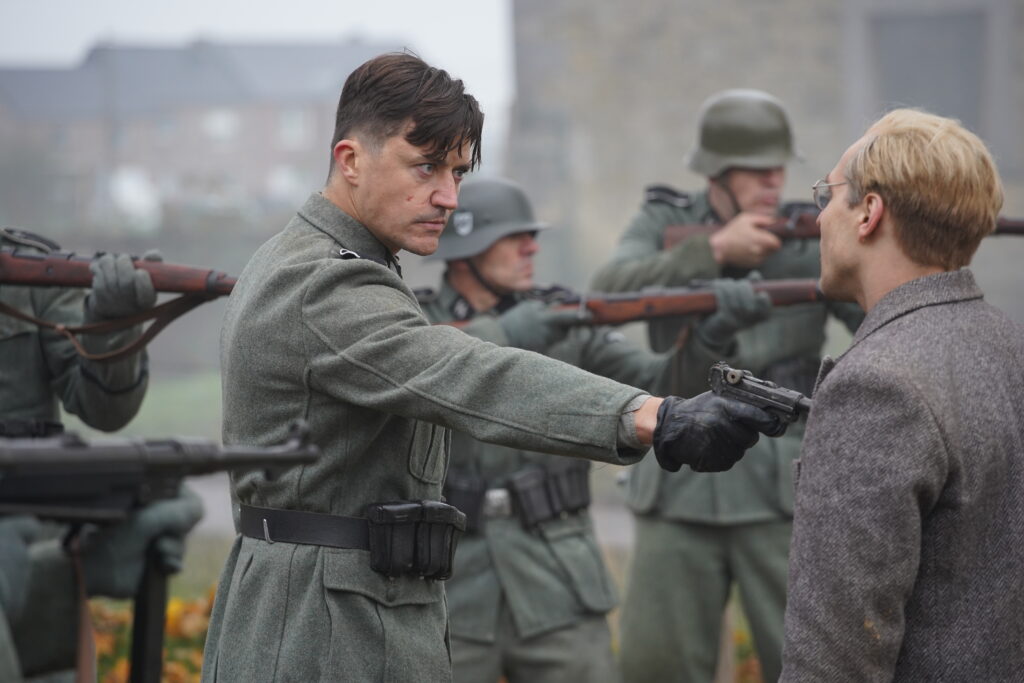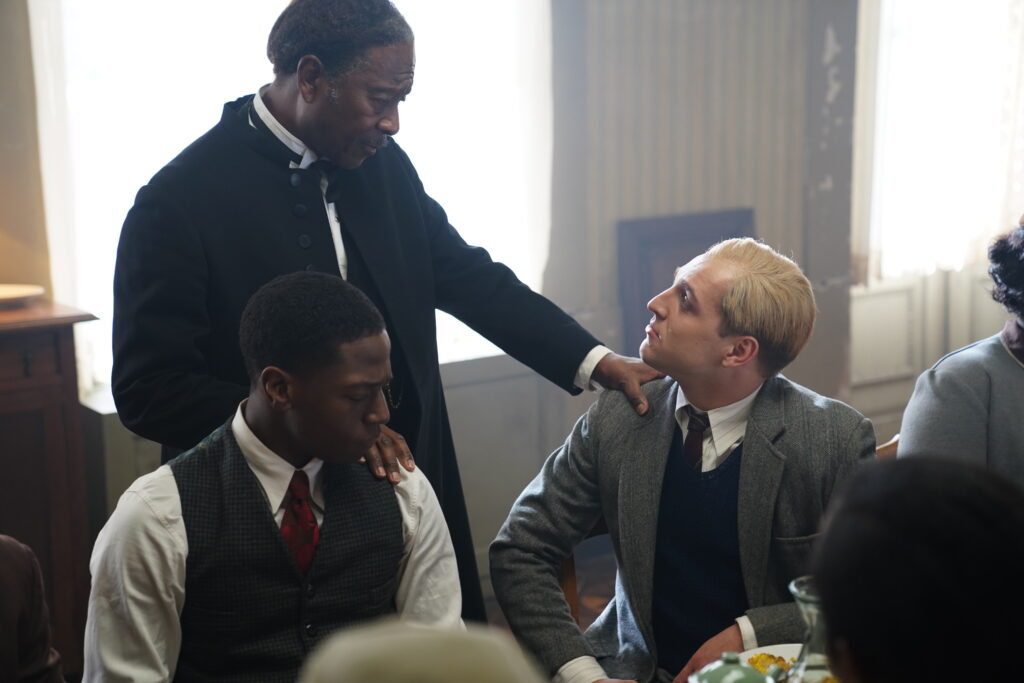Angel Studios’ Bonhoeffer: Pastor. Spy. Assassin. delivers more than a history lesson—it’s a harrowing exploration of conviction, resistance, and the moral complexity of opposing tyranny. Directed by Todd Komarnicki (Sully), this period drama offers a portrait of Dietrich Bonhoeffer, the German Lutheran minister turned anti-Nazi conspirator, whose journey feels eerily resonant in today’s polarized world.
At its core, Bonhoeffer is a tale of transformation. Jonas Dassler portrays Bonhoeffer as a man whose unwavering faith drives him from the safety of theological reflection to the danger of political resistance. The film uses a time-tripping structure, cutting between Bonhoeffer’s imprisonment in the SS barracks at Buchenwald and flashbacks that trace his evolution—from a privileged child to a courageous minister, from a vocal critic of Nazism to a reluctant conspirator in a plot to assassinate Hitler.
Komarnicki doesn’t shy away from the moral weight of Bonhoeffer’s decisions. A pivotal moment comes when a fellow conspirator asks, “Will God forgive us if we do this?” Bonhoeffer’s reply—“Will God forgive us if we don’t?”—captures the ethical tension that underpins the film’s most gripping scenes.
Jonas Dassler’s portrayal of Bonhoeffer is nothing short of remarkable. He conveys the character’s evolution with a blend of zeal, vulnerability, and quiet intensity, grounding the film’s larger themes in deeply personal stakes. The supporting cast also shines, from Tim Hudson’s understated Churchill to Marc Bessant’s chillingly reserved Hitler.

The film’s direction leverages time-tested cinematic techniques to heighten suspense. One standout sequence cross-cuts between an assassination attempt on Hitler and Bonhoeffer’s impassioned rehearsal of an anti-Nazi sermon in a Harlem church. The juxtaposition is both thematically rich and nerve-wracking.
Visually, the film is a triumph. The production design and Matthew Rivera’s cinematography immerse viewers in 1930s and 40s Germany, while Angel Studios’ commitment to quality is evident in every frame. The attention to detail—from Nazi propaganda to the smoky vibrancy of a Harlem nightclub—lends the film an authentic period flavor.
Not everything lands with precision. The script occasionally veers into melodrama, with some dialogue and scenes feeling too on-the-nose. A line like, “The Nazis’ rise to power has everyone a little anxious, Dietrich,” might draw eye rolls rather than empathy. Similarly, Bonhoeffer’s brother heading off to World War I is telegraphed so heavily that his fate feels less like tragedy and more like inevitability. Despite these missteps, Bonhoeffer manages to recover, often leaning into its broader themes to outweigh its narrative missteps.

The film’s faith-based nature is handled with sincerity and nuance. Bonhoeffer’s story explores questions of morality, sacrifice, and the cost of doing what’s right. Dawn Olivieri delivers a standout performance as Bonhoeffer’s mother, whose quiet faith contrasts with her son’s growing radicalism. Komarnicki avoids caricature, treating all characters with nuance.
The timeliness of the story cannot be overstated. Its exploration of propaganda, political polarization, and moral compromise resonates far beyond its historical setting. Lines like, “God sent Germany a prophet. And more than that, a true savior,” carry an unsettling echo in today’s political climate.
Bonhoeffer: Pastor. Spy. Assassin. isn’t a flawless film, but it’s a deeply compelling one. Anchored by Jonas Dassler’s powerful performance and Komarnicki’s gripping direction, it weaves a story that feels both timeless and timely. Its flaws—occasional melodrama and heavy-handedness—don’t detract from its impact as a portrait of faith in action.
For those who’ve ever wondered whether they’d have the courage to stand up in the face of tyranny, Bonhoeffer offers an unflinching reminder: history doesn’t just repeat itself—it asks us to choose a side.
“Follow the money, follow the story.”


